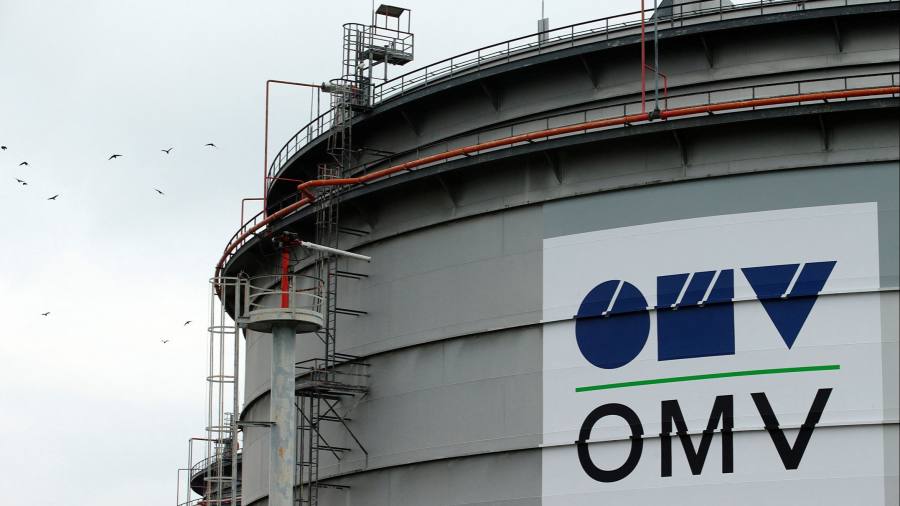
Receive free EU energy updates
We’ll send you a myFT Daily Digest email rounding up the latest EU energy news every morning.
Austrian energy group ÖMV will continue to buy most of its gas from Russia this winter, its chief executive has said, even though the company has secured back-up contracts to fully cover its import needs from other sources.
Alfred Stern said that, 18 months after Russia’s invasion of Ukraine, his company was not making any plans to try to exit its long-term supply contract with Russia’s Gazprom, which it signed in 2018. Russian gas is not subject to western sanctions.
“As long as Gazprom will supply . . . we will continue to take these quantities from Gazprom,” Stern said in an interview with the Financial Times.
Asked if EU sanctions on Russian gas would be welcome, or would provide reputational respite for ÖMV, the 58-year-old Austrian said the issue was “for policymakers to decide” but warned “eliminating certain sources will also drive price rises”.
“There is an obligation we have as an industrial company to ensure that we use those sources as long as they are legally acceptable,” he added.
ÖMV, a regional energy giant with sizeable petroleum and chemicals businesses that generated €62bn in revenues last year, supplies about 30 per cent of the Austrian gas market. The company, whose biggest shareholder is the Austrian government, has been sharply criticised for its dependency on Russian energy.
At points last winter, the company was paying more than €1bn a month to the Kremlin for Russian gas.
Weaning member states from their dependency on Russian energy has become a central plank of the EU’s response to Moscow’s aggression. In June 2022, Brussels introduced a ban on the import of Russian oil. Restricting the Kremlin’s gas has proved more difficult, however, given its centrality to many countries’ economies. Sanctions on gas imports have been discussed by the EU, but no consensus has emerged.
While neighbouring Germany and the Czech Republic have both reduced Russian gas imports to zero, Austria, much like Hungary, has made little, if any headway in reducing its reliance on Russian gas.
Austrian energy minister Leonore Gewessler acknowledged last month that not enough was being done as she called on Austrian energy companies to deliver more concrete progress towards reducing Russian gas imports.
Stern rejected criticism that ÖMV has been idle, however.
The company has now finalised contracts to secure pipeline capacity to transport its full gas needs, and has secured supply from Norway as well as LNG terminals in the Netherlands and Italy, he noted.
“All this has given us access to non-Russian gas that is more than enough to cover our customer obligations,” Stern said, pointing to the unreliable nature of Russian supplies, which varied greatly last year, fluctuating between 20 per cent and 70 per cent of ÖMV’s monthly gas imports.
Russian gas supplies to Austria may, in any case, be permanently interrupted next year by the cessation of the existing transport contract between Russia and Ukraine.
Stern also noted ÖMV has just approved €2bn to bring the Neptun Deep gasfield in the Black Sea online by 2027 in a 50-50 joint venture with Romania’s Romgaz; a project that will bring 100bn cubic metres of natural gas to the European market.
“This will make Romania the biggest natural gas producer in the EU and ÖMV one of the biggest producers of gas in Europe,” Stern said. “I think that’s a significant contribution to the security of European supply.”
He said overall ÖMV had done an “exceptionally good job” in dealing with the current energy crisis while admitting the “take or pay” terms of the contract with Gazprom meant Russia still has the whip hand on deciding how much gas ÖMV buys from it or not.
Stern declined to directly criticise the contract and characterised it as being based on “standard” market terms: “There is nothing strange about it.”
The contract runs until 2040 and was signed in 2018 amid fanfare by his predecessor, Rainer Seele, who was criticised for being too close to Russian interests. Russia’s President Vladimir Putin flew to Vienna personally to witness the signing.
The company is aiming for 50 per cent of its revenues to come from its chemicals businesses by 2030, up from 30 per cent currently. It will continue to divest its traditional petroleum businesses and focus instead on green fuels such as hydrogen, Stern added.
He declined to comment on what he said were “market rumours” last week that ÖMV may be in talks over a possible $30bn merger of its chemicals arm Borealis with Borouge, the chemicals firm majority owned by the United Arab Emirate’s Adnoc, which Borealis also holds a 36 per cent stake in.
It was inconceivable that ÖMV would do any deal to reduce its focus on chemicals, Stern stressed: “Chemicals are the growth engine of [our] strategy.”
“No Borealis shares are for sale from ÖMV,” he added.
Adnoc also owns 25 per cent of Borealis and 25 per cent of ÖMV itself. ÖMV in turn owns 15 per cent of Adnoc.
“Less complex is always better,” said Stern. “But not always possible.”